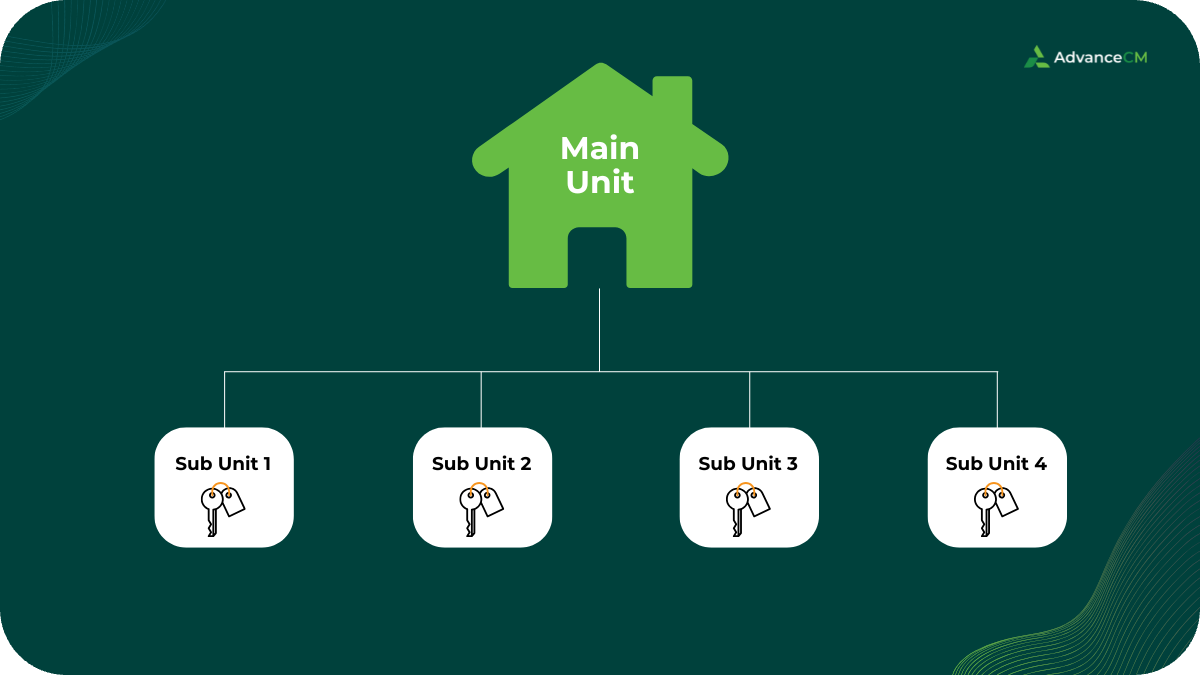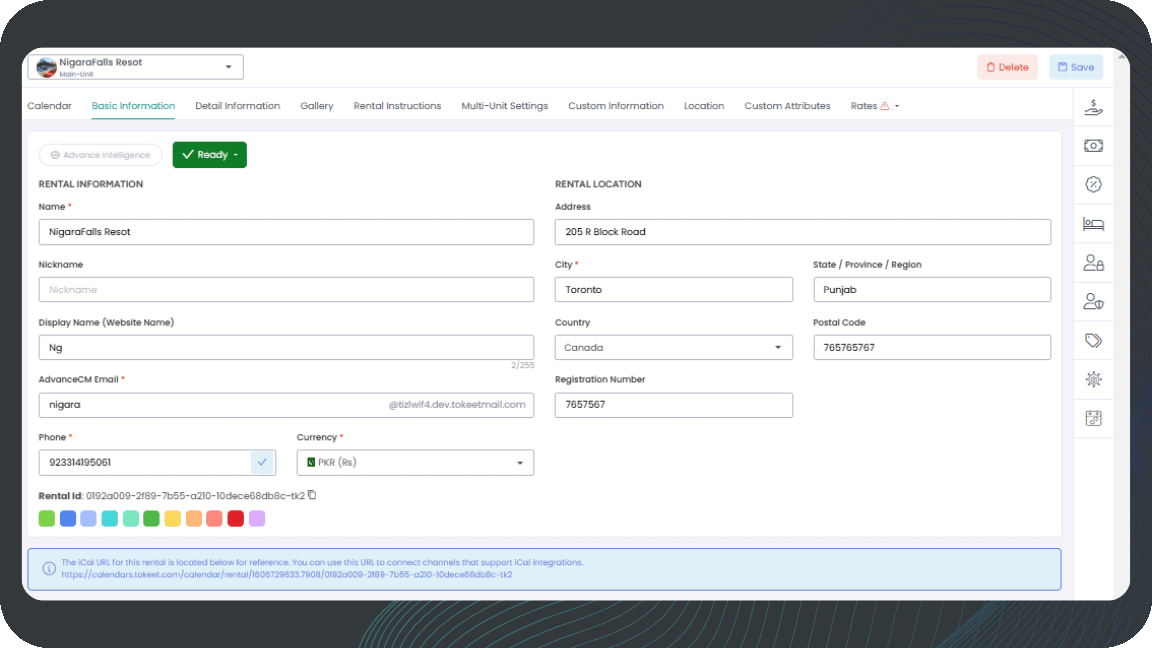 Streamlining Multi-Unit Rental Management with AdvanceCM
Streamlining Multi-Unit Rental Management with AdvanceCM
Managing multiple rental units efficiently is essential for property managers handling large-scale operations. AdvanceCM’s Multi-Unit feature is designed to simplify this process by linking multiple sub-units to a main unit, ensuring seamless availability, pricing, and booking management across various channels. Whether you’re hosting a group, event, or need to manage several units at once, this new tool streamlines the booking process and enhances your guests’ experience.
 Understanding multi-unit rentals in AdvanceCM
Understanding multi-unit rentals in AdvanceCM
The Multi-Unit feature in AdvanceCM allows users to manage a group of rental properties under one main unit while maintaining individual sub-unit availability. This setup is ideal for properties such as hotels, apartment complexes, and vacation rental portfolios with identical listings. For a detailed FAQ on Multi-Unit Rentals, check out our Multi-Unit Rentals Relationship FAQs.
Key benefits:
- Group Bookings: Perfect for large groups or families looking to stay together in multiple units, increasing your booking potential.
- Corporate Stays: Hosts can easily accommodate business teams needing separate rooms or apartments while staying in the same property.
- Centralized Multi Calendar: Manage all your units from a single platform, making it easy to view availability, bookings, and guest information.
- Higher Booking Value: With the ability to book multiple units at once, you increase the potential for higher earnings from larger group reservations..
- Peak Season Efficiency: In high-demand times, this feature allows you to efficiently manage and fill all available units.
Key features and functionality
 1. Main unit vs. sub-unit rentals
1. Main unit vs. sub-unit rentals
- The main unit serves as the central point for managing rates and availability.
- Sub-units are linked to the main unit and inherit its pricing structure.
- Bookings are assigned to sub-units based on a priority rule.
For more details on the differences between Main and Sub-Unit Rentals, visit our article that explores this topic in detail!.
2. Booking management
- Bookings created for a main unit are automatically assigned to an available sub-unit.
- Sub-units can be booked individually.
- Existing bookings on a rental remain in place when it is converted into a main unit.
3. Pricing and availability control
- Rates can be set at the main unit level and are applied to all sub-units.
- Availability updates are pushed to Online Travel Agencies (OTAs) such as Booking.com and Airbnb.
- If a sub-unit is booked, the system updates the availability count for the main unit accordingly.
OTA Connectivity and channel management
One of the most significant advantages of the Multi-Unit feature is its ability to sync with major OTAs, ensuring real-time availability updates:
- Booking.com: The “Rooms to Sell” count is updated based on sub-unit availability.
- Airbnb: The “available_count” field is adjusted when sub-units are booked.
- Expedia: The inventory count reflects real-time sub-unit availability.
- Agoda: The allotment will be updated accordingly. If a user has two sub-units and one is booked, Agoda will show allotment count = 1.
- Other OTAs (VRBO, GVR, Holidu, Marriott, Trip.com, Tiket): Currently, the Multi-Unit feature is not supported on these platforms.
Editing and managing multi-unit relationships
Maintaining clear connections between your main and sub-units is essential for efficient management. Within the Rentals module, users have the flexibility to create, modify, or remove these relationships as needed.
- Users can create, edit, or delete multi-unit relationships via the Rentals module.
- A sub-unit can only be linked to one main unit at a time.
- If a multi-unit relationship is removed, each unit reverts to an independent rental.
Comparing multi-unit vs. parent-child relationships
While AdvanceCM also supports Parent-Child rental relationships, there are notable differences:
- Rate management: In a Parent-Child setup, each rental has independent rates, whereas Multi-Unit rentals inherit rates from the main unit.
- Booking behavior: Parent rentals generate hold events across child rentals, while Multi-Unit rentals assign bookings to sub-units dynamically.
- Availability updates: Parent-Child relationships update availability for each unit separately, whereas Multi-Unit updates reflect total sub-unit availability.
For an in-depth comparison, read our article on Major Differences Between Multi-Unit Rental and Parent-Child Rental Relationships.
Final thoughts
AdvanceCM’s Multi-Unit feature provides property managers with an efficient way to manage multiple rental units under a unified system. By streamlining pricing, availability updates, and booking assignments, it ensures a smooth operational workflow while enhancing OTA connectivity. For those managing large-scale rental operations, this feature is a game-changer in optimizing property management processes.
Need further assistance? Our support team is always ready to help!




